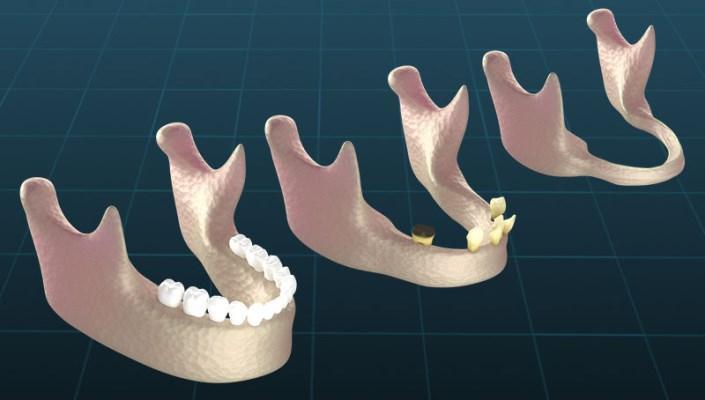The study suggests that antihypertensive drugs may have a positive effect on jaw cortical thickness, possibly preventing bone loss. Cone beam computed tomography (CBCT) showed this.

The authors of the study believe this is the first study that has used CBCT to investigate the effect of high blood pressure treatment on jaw cortex thickness. If further research proves that antihypertensive drugs have the potential to improve cortical density and thickness, dental practitioners may evaluate and select patients for treatment differently.
“Antihypertensive drugs may indeed have a protective effect against age-related bone loss,” wrote study co-author Dr. Brett Spenrath, chief resident of the Department of Oral and Maxillofacial Surgery at the Institute of Oral Health at the University of Rochester Eastman in New York.
Chronic high blood pressure can negatively affect bone density. Recent studies have shown that the use of antihypertensive drugs, including calcium channel blockers, angiotensin-converting enzyme inhibitors, and beta-blockers, can reduce age-related loss of bone density and reduce the risk of hip fractures. However, the issue remains a matter of debate because, according to the authors, other studies have failed to show how high blood pressure medications affect bone density.
The issue of bone density is critical to dentistry, as bone morphology can affect the survival of dental implants. Implants placed in thick cortical bone have higher primary stability, a key indicator that they are less likely to fail.
To investigate the association between antihypertensive drug use and jaw cortex thickness, the researchers obtained CBCT scans from 169 patients who underwent imaging for reasons unrelated to the study. The study revealed that 67 of these patients were taking antihypertensive drugs.
The expert measured the thickness of the cortical layer of the buccal branch of the jaw at the height of the occlusal plane. Based on the measurement results, the expert estimated the average thickness for each patient.
After viewing the images, an average difference in cortical thickness of 0.21 mm was found between those who did not take high blood pressure medication and those who did. This suggests that the drugs may have a prophylactic effect against bone loss.
Although the study used relatively small amounts of CBCT, it adds new evidence that an association between antihypertensive drug use and bone thickness may indeed exist. According to the authors, if these findings are confirmed by additional studies, the findings could one day influence the clinical outcomes of patients who undergo procedures, including dental implant treatment and treatment of jaw fractures.
“When examining the mandible, we found that antihypertensive drugs have a positive effect on cortical thickness,” Spenrath and colleagues concluded.
